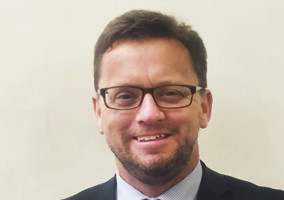Kirsty Weakley looks at what we can tell about the government’s priorities from recently released information about ministerial meetings.
The latest round of the government’s transparency data was published last week. You can learn some fascinating nuggets of information from these releases, such as the fact that animal rights charity Peta sent the Prime Minister shoes for her birthday. But more usefully it also gives and insight into who the key ministers are talking to, and what their priorities are.
Minister for civil society Rob Wlson held a grand total of 126 meetings in 2016, and a lot of them were about youth policy, fundraising regulation and social investment. This isn’t exactly news, but it is useful to have it confirmed.
Relatively few meetings were about mainstream charity sector issues, and mainstream umbrella bodies were under-represented. The minister appears to have spent more time in conversation with Frank Bruno than the Charity Finance Group.
We’ve collated the full list of the minister’s meetings below so you can explore it for yourself. It’s worth noting that the Office for Civil Society was moved from the Cabinet Office to the Department of Culture Media and Sport in July, when Wilson took on responsibility for libraries.
Who did the minister for civil society meet?
During 2016 he met with the NCS Trust five times, met with a range of charities aimed at young people including the Prince’s Trust, Scout Association and Step Up to Serve and held 16 meetings on youth-related issues.
In July Wilson met Frank Bruno, Lord Lamb and David Lloyd to “discuss the potential to link the work of the Frank Bruno Foundation and NCS”.
On social investment he also held 16 meetings on the subject, including a roundtable event with the Association of Charitable Foundations in May.
He met with the Fundraising Regulator five times, and also with the Fundraising Preference Service. In separate meetings he also discussed fundraising regulation with Cancer Research UK, the Institute of Fundraising, and Save the Children.
Umbrella bodies
He appears to have had relatively few meetings with umbrella bodies.
In September he met with a group, which consisted of: NCVO, Acevo, Social Enterprise UK, Charity Finance Group, Charities Aid Foundation, Institute of Fundraising, Association of Charitable Foundations, Navca, Small Charities Coalition, Charity Commission, and the Large Charities Group.
Separately to this meeting he met with NCVO twice, Acevo’s interim chief executive, Asheem Singh once, and not at all with the Charity Finance Group or the Charities Aid Foundation.
The Large Charities Group consists of Age UK, Barnado's, British Red Cross, British Heart Foundation, Cancer Research UK, Macmillan, Marie Curie Cancer Care, NSPCC, RNLI, The Royal British Legion, Royal Opera House, Scope, Save the Chidlren, The Scout Association, St John's Ambulance, Alzheimer's Society and the Salvation Army. They also met with the minister in October.
Wilson also met with two supermarkets, Asda and Aldi, in December.
Elsewhere in government
But the Office for Civil Society isn’t the only place that charities should be trying to get their voice heard, so how effectively are charities engaging with other departments?
Given the changes in government we’ve just looked at the last three months here, covering the period October to December 2016.
Charities appear to have had some success in engaging with the new Department for Exiting the European Union.
Lord Bridgets of Headly, parliamentary under secretary, has met with the Wellcome Trust. Robin Walker MP, also a parliamentary under secretary, has held a roundtable with the voluntary sector, though it does not say who was involved. Walker also met with the Northern Ireland Council for Voluntary Action, Gingerbread NI, Disability Action and Ashton Community Trust.
Walker met has met with environmental organisations: the Woodland Trust, WWF-UK, Canal & Rivers Trust The Wildlife Trust for Birmingham & Black Country, the RSPB, National Trust, Blue Marine Foundation and international aid charity Tearfund.
In November a number of faith organisations, and Acevo, met with Sajid Javid, Secretary of State for Communities and Local Government to discuss faith issues.
Javid has also met with the Royal British Legion and Gavin Barwell, minister for housing, met with Shelter.
Jane Ellison, the Treasury minister whose brief includes responsibility for charity policy, has not met with either CFG or the Charity Tax Group, since taking on the role.
The Prime Minister
Theresa May met with Diabetes UK in November about its work. May revealed a few years ago that she suffers from the condition.
Between October and December she held ten charity receptions, though it does not say who was involved.
What does this mean?
The focus of the OCS on a narrow range of issues underscores that charities should not rely on it as the single entry point for engaging with government.
It is reassuring that DeExEU is talking to parts of the sector – ahead of Brexit negations beginning in earnest the department is likely to be in listening mode, so it is good that it is hearing from charities as part of this.
Rob Wilson’s 2016 meetings in full
Related articles











